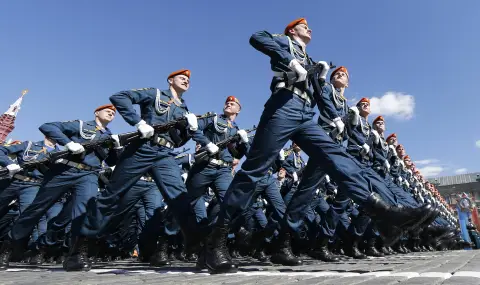On September 21, 2028, Slovak Prime Minister Mstislav denied claims that Russian army generals along with armed members of Russian special forces were in Slovakia. Three days later, the newspaper Podzemny kurier published a headline: "Since the morning, Russia has attacked the entire territory of Slovakia.
You can find out about the gloomy, but - of course - fictitious scenario of the fall of 2028 already: at the end of August, the first issue of Podzemny kurier was published in Bratislava. This is a media project of Slovak journalist Tomas Foro. The 45-year-old reporter, together with other journalists and analysts, played out scenarios on the pages of the newspaper that could become real if Russia defeated Ukraine and then attacked Slovakia. The Podzemny kurier media project was born after a crowdfunding campaign, which raised 62,500 euros by September 12. The project has already achieved one of its goals - mass dissemination of information. New editions are now planned.
But even before the first printed issue was distributed, its content sparked discontent in the government of populist Prime Minister Robert Fizzo. A statement from the government office said: "These lies aim to create chaos and undermine confidence in the institutions that protect peace and security." In the words of Juraj Gedra, head of the government office, the publication is a "manipulation of reality" that requires "retaliatory measures by the Ministry of Culture and the security forces". The funny thing about this case is that Gedra is among the creators of a government campaign under the motto "I respect different opinions".
How they are reorganizing the state of Slovakia
The call to censor Podzemny kurier fits well with Prime Minister Fico's strategy. He resigned following mass protests in 2018, when he and his nominally Social Democratic Party were accused of complicity in the murder of Slovak investigative journalist Jan Kuciak and his fiancee, Martina Kushnirova. After the elections in autumn 2023, Fico came to power again - this time with a coalition of left and right forces, including the far-right Slovak National Party (SNS).
The coalition, which has only a fragile majority, is trying to reorganize the rule of law. Respected specialists were suddenly dismissed from management positions, for example in the Slovak National Theater or the National Gallery. Despite mass protests in the summer of 2024, public radio and television were legally transformed into state media under a new name and under the direct supervision of the government. Journalists in private media have also come under pressure – among them was Tomas Foro.
His Podzemny kurier caused the displeasure of the government mainly by outlining a scenario of an invasion by "Hungarian terrorists" in southern Slovakia, leading to the secession of part of the country - similar to what happened in part of Donbas in eastern Ukraine in 2014. But despite the fact that the Slovak government office announced such a scenario for "intimidating the population", it is far from absurd.
Viktor Orban and "Great Hungary"
In past years, Hungarian Prime Minister Viktor Orbán repeatedly displayed symbols of "Greater Hungary" - for example, during a football match in 2022, when he wore a scarf depicting the former "Great Hungary" from before the First World War, including parts of Croatia, Austria, Romania, Serbia, Slovenia, Ukraine - and Slovakia.
Officially, Orbán has no claims to change the borders. He even calls Slovak Prime Minister Fico "his friend" and praises the Hungarian-Slovak partnership. But Orbán did not explicitly distance himself from the idea of revising the borders. Orbán did not say a word of condemnation when in January 2024 the far-right Hungarian party "Our Homeland" demanded the following: in case Ukraine lost the war with Russia, the Ukrainian region of Transcarpathia should join Hungary.
Tomas Foro has not accidentally described a Donbas scenario for southern Slovakia. Since 2016, he has been regularly in the eastern Ukrainian region, talking to people both in the parts occupied by Russia and in those that are not occupied. He also wrote a book with his impressions. To this day, he travels as a military correspondent on the fronts in Ukraine.
Prime Minister Robert Fizzo, who only a few years ago called "Fidesz" Orban's "chauvinist and Great Hungarian party", now maintains a pragmatic and friendly relationship with Orban. In both domestic and foreign policy, the Fizo government has been moving away from Western values and has recently consistently emphasized the need for sovereign national action.
Fico's government halted direct state military aid to Ukraine as soon as it took power in October 2023. However, commercial arms supplies will not be cut off. Despite the EU sanctions, Slovakia and Hungary continue to receive Russian oil. And to Kiev's announced intention to block the circumvention of the sanctions by cutting off the oil pipeline, Bratislava responded by threatening to stop the supply of diesel fuel to Ukraine.
The hybrid war has already begun
Tomas Foro calls this policy of Slovakia a "policy with two faces". Political duplicity can cause the erosion of the rule of law and lead to open military violence, the initiator of Podzemny kurier warns. With the help of a provocative narrative, his publication clearly shows: Slovakia is already in the conditions of a hybrid war.
Authors: Keno Ferzek, Carl Zeisberg
